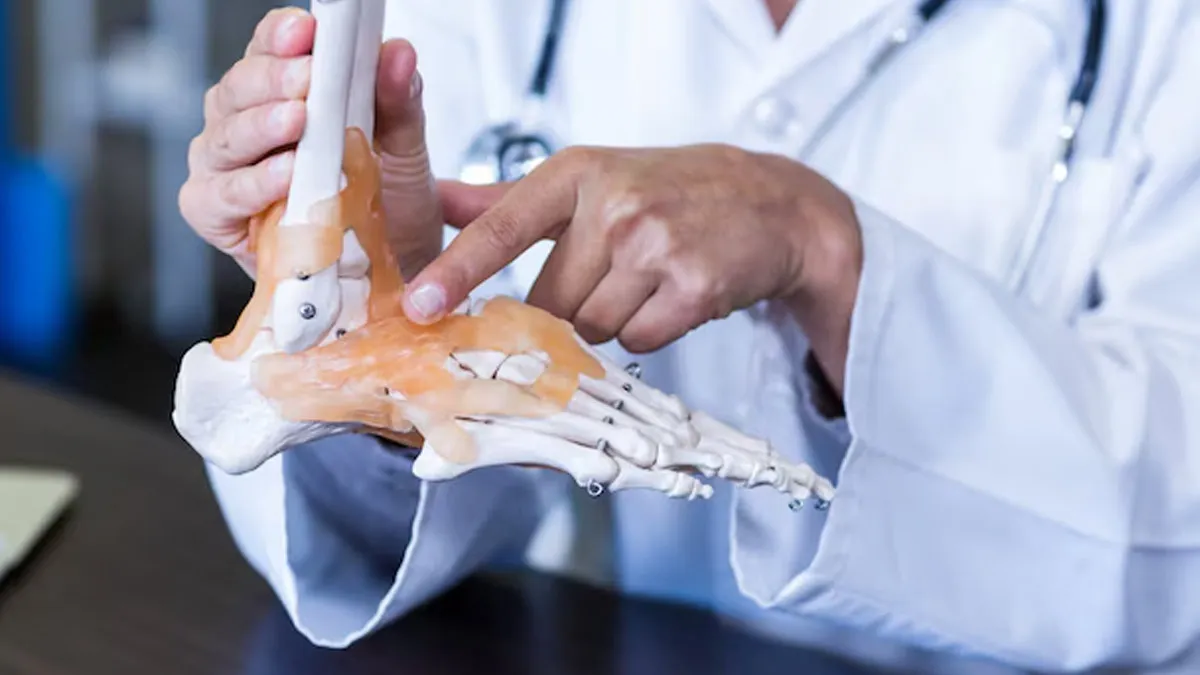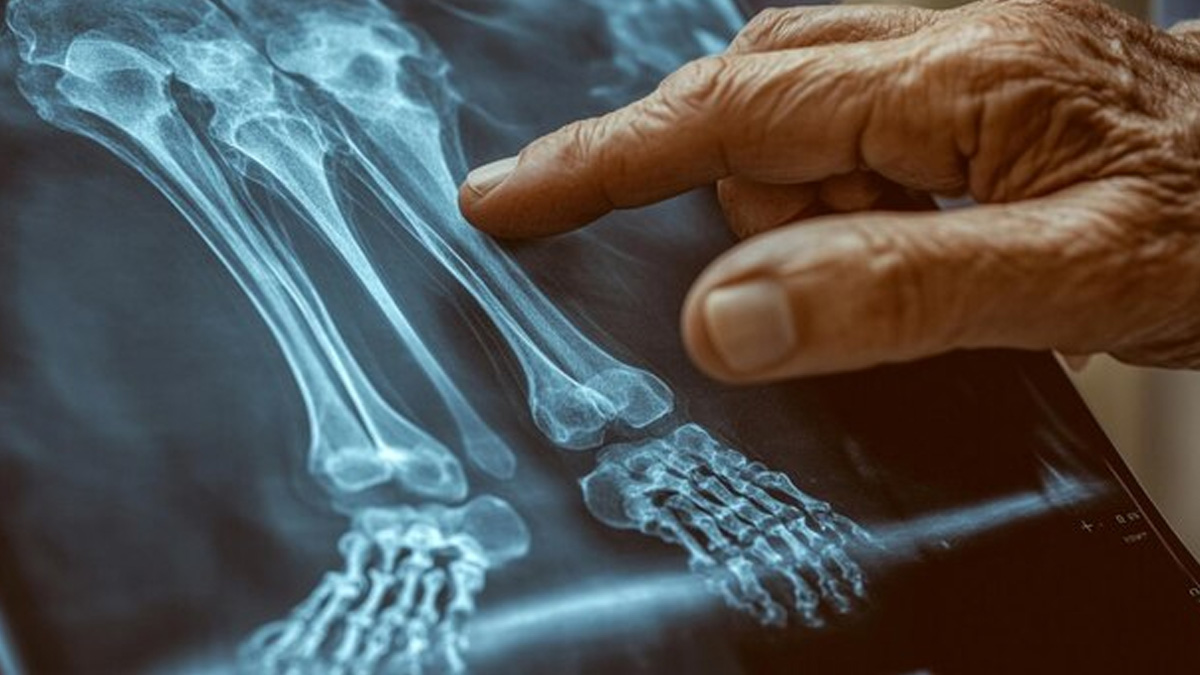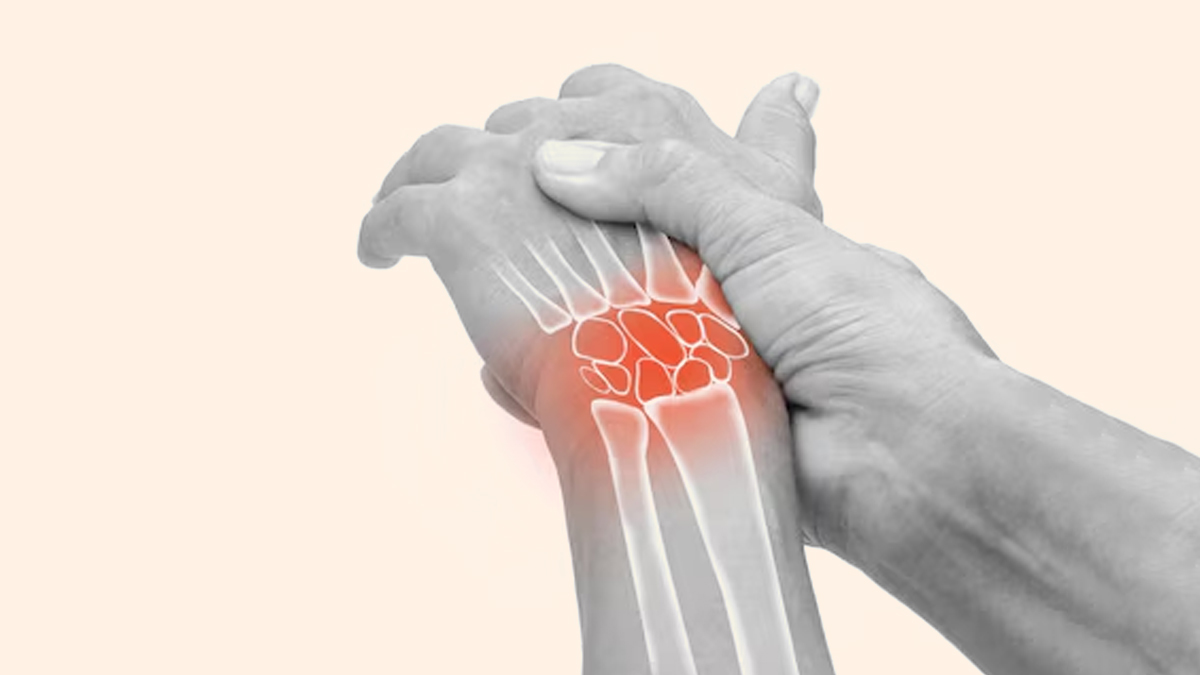
Bone health is essential for overall well being, especially as we age. Strong bones are key to a stronger future and help you steer clear of chronic issues as you age, which is why as we grow older, maintaining bone density becomes all the more important to prevent fractures, osteoporosis, and other related conditions. To do so, we often want to opt for natural ways instead of medicines and other invasive ways. Here’s a list of tips that will help you naturally improve your bone density.
Table of Content:-
RELATED: From Improving Sleep To Strengthening Bones, Health Benefits Of Having Dates With Warm Milk
1. Prioritise Calcium-Rich Foods

According to Mayo Clinic, calcium is crucial for building and maintaining strong bones. Adults aged 19 to 50 require about 1,000 milligrams daily, while those over 50 or women post-menopause need up to 1,200 milligrams. Instead of relying solely on supplements, include calcium-rich foods in your diet.
Dairy products such as milk, cheese, and yoghurt are excellent sources. If you’re lactose intolerant or prefer plant-based options, consider almonds, kale, broccoli, tofu, and canned fish like sardines or salmon with bones. Regularly consuming these foods ensures your body gets the nutrients needed for bone regeneration and reduced bone breakdown.
2. Boost Vitamin D Intake
Calcium absorption relies heavily on vitamin D, making it another key player in bone health. As per the Office of Dietary Supplements, adults under 70 years old should aim for 600 international units (IUs) of vitamin D daily, while those over 70 need 800 IUs. Sunlight is a natural source of vitamin D, so spending time outdoors can help your body produce it naturally.
Additionally, oily fish like salmon, trout, and tuna, as well as eggs, mushrooms, and fortified foods, are excellent dietary sources. If sunlight exposure or food intake is insufficient, consulting a doctor about supplements is a good option.
3. Bone-Strengthening Exercises

Regular physical activity is vital for improving bone density. Weight-bearing exercises like walking, jogging, and stair climbing encourage bone formation and reduce bone loss. Strength-training routines, including weightlifting and resistance exercises, build muscle mass, which supports bone strength. High-impact activities, such as jumping rope or running, are particularly beneficial for younger individuals and can slow bone loss as you age.
Engaging in regular exercise also helps combat inflammation around bones, reducing the risk of weakening or damage. A study on physical activity and bone density in individuals with osteoporosis indicates that engaging in weight-bearing aerobic exercises by itself can help reduce the loss of bone mass, whereas strength training and resistance workouts can enhance both muscle and bone density.
4. Maintain A Balanced Diet
While calcium and vitamin D are crucial, a balanced diet rich in other nutrients also supports bone health. Protein is a significant component of bone structure, with about half of your bones consisting of protein. A daily intake of 80 to 100 grams of protein, balanced with other food groups, ensures proper calcium absorption and bone regeneration. Sources include lean meats, eggs, dairy, legumes, nuts, and seeds.
Fruits and vegetables are equally important. Studies suggest that consuming at least five servings daily can enhance bone mass density and lower the risk of fractures. Whole foods provide a wealth of vitamins and minerals, ensuring your body processes nutrients efficiently. Magnesium, found in nuts, seeds, and whole grains, activates vitamin D for better calcium absorption. Zinc, also present in these foods, promotes bone growth and strength.
5. Avoid Harmful Habits
-1737611496454.jpg)
Certain lifestyle choices can weaken bone density over time. Smoking is a significant risk factor, as it reduces the body’s ability to absorb calcium. Similarly, excessive alcohol consumption interferes with bone regeneration. Limiting alcohol to one drink per day for women and two for men can minimise these risks.
6. Manage Your Weight
Maintaining a healthy weight is essential for bone health. According to the Royal Osteoporosis Society, being underweight increases the risk of bone disease, while excessive weight places unnecessary stress on the bones. Avoid rapid weight loss or frequent weight fluctuations, as these can lead to irreversible reductions in bone density. Instead, focus on gradual and sustainable weight management through a nutritious diet and regular exercise.
RELATED: Vitamin D May Not Prevent Falls Or Fractures, But Here’s What Actually Will
Takeaway
Improving bone density naturally requires a combination of nutrient-rich foods, regular exercise, and mindful lifestyle choices. Incorporating calcium, vitamin D, and protein into your diet, alongside weight-bearing and strength-training exercises, can make a significant difference. Avoid harmful habits like smoking or excessive drinking, and maintain a moderate, stable weight. By adopting these practices early and consistently, you can ensure strong and healthy bones well into your later years.
Also watch this video
How we keep this article up to date:
We work with experts and keep a close eye on the latest in health and wellness. Whenever there is a new research or helpful information, we update our articles with accurate and useful advice.
Current Version